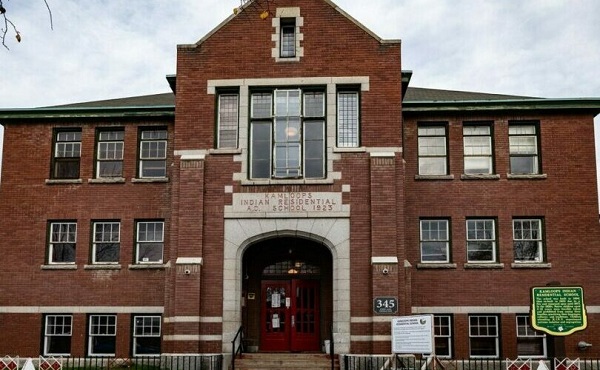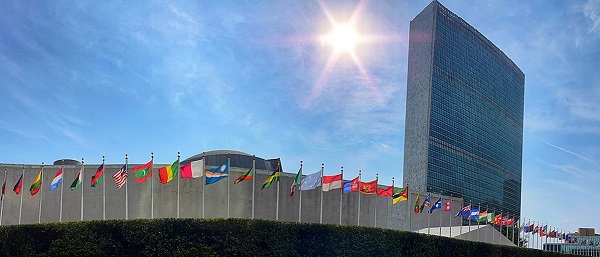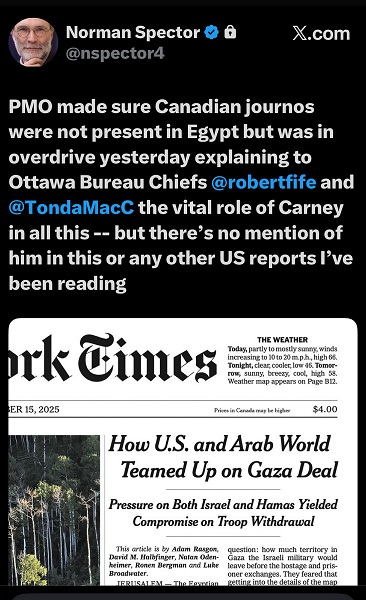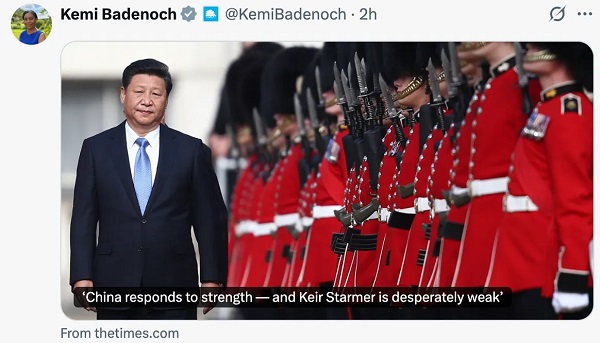Censorship Industrial Complex
Former residential school student refutes ‘genocide’ claims, recalls positive experience

From LifeSiteNews
An Indigenous whistleblower condemned the media-driven narrative about ‘mass’ graves at residential schools that led to church burnings across Canada.
An Indigenous whistleblower shared his positive experience at a Residential school, debunking the claim that the schools abused and murdered their students.
In an April 5 interview with Rebel News reporter Drea Humphrey, a Kamloops Band member and former Kamloops Indian Residential School student revealed that there was no”genocide” at the schools and many students benefited from the institution.
“A lot of the students were happy to be there,” the Band member, whose identity was kept anonymous, said. “They were away from abusive families, dysfunctional families, alcoholism. So, they were happy to be there.”
The former student revealed that he was treated well during his time at the residential schools in the 1970s. He also described the priests and nuns who ran the school as good people, referring to Father Noonan, the principal at the time, as “a real nice guy.”
Residential schools, while run by both the Catholic Church and other Christian churches, were mandated and set up by the federal government and ran from the late 19th century until the last school closed in 1996.
While some children did tragically die at the once-mandatory boarding schools, evidence has revealed that many of the children passed away as a result of unsanitary conditions due to underfunding by the federal government, not the Catholic Church.
As a consequence, since 2021, when the mainstream media ran with inflammatory and dubious claims that hundreds of children were buried and disregarded by Catholic priests and nuns who ran some of the schools, over 100 churches have been burned or vandalized across Canada in seeming retribution.
However, to date, there have been no mass graves discovered at any residential schools across Canada.
The Band member revealed that the Kamloops Band knows they “made a mistake” in labeling the ground anomalies as “unmarked graves.”
In fact, according to the Band member, in the 1990s, the Band used the supposed location of the 215 child graves for their new Powwow Arbour and Heritage Park. The project was only allowed to continue after studies concluded that there were no artifacts or archaeological remains at the site.
Therefore, if there were mass graves at that location, they would have been discovered in the 1990s, not in 2021.
The Band member revealed that he does not believe a “genocide” took place at residential schools, while condemning the church burnings across Canada.
“When I was growing up religion and church meant community and family,” he explained. “It seems like the Liberals want to destroy family so the way to do that is to attack religion.”
“Attacking religion was a good excuse to burn the churches,” he said.
Regardless of his testimony and the lack of evidence to support the claim, mainstream media outlets perpetuate the “mass graves” narrative and even threaten to punish those who oppose it. In November, CBC subtly suggested that “residential school denialism” should be criminalized.
Censorship Industrial Complex
Canada’s privacy commissioner says he was not consulted on bill to ban dissidents from internet

From LifeSiteNews
Privacy Commissioner Philippe Dufresne that there was no consultation on Bill C-8, which is touted by Liberals as a way to stop ‘unprecedented cyber-threats.’
Canada’s Privacy Commissioner admitted that he was never consulted on a recent bill introduced by the Liberal government of Prime Minister Mark Carney that became law and would grant officials the power to ban anyone deemed a dissident from accessing the internet.
Privacy Commissioner Philippe Dufresne said last week that in regard to Bill C-8, titled “An Act respecting cyber security, amending the Telecommunications Act and making consequential amendments to other Acts,” that there was no consultation.
“We are not consulted on specific pieces of legislation before they are tabled,” he told the House of Commons ethics committee, adding, “I don’t want privacy to be an obstacle to transparency.”
Bill C-8, which is now in its second reading in the House of Commons, was introduced in June by Minister of Public Safety Gary Anandasangaree and has a provision in which the federal government could stop “any specified person” from accessing the internet.
All that would be needed is the OK from Minister of Industry Mélanie Joly for an individual to be denied internet service.
The federal government under Carney claims that the bill is a way to stop “unprecedented cyber-threats.”
The bill, as written, claims that the government would need the power to cut someone off from the internet, as it could be “necessary to do so to secure the Canadian telecommunications system against any threat, including that of interference, manipulation, disruption, or degradation.”
While questioning Dufresne, Conservative MP Michael Barrett raised concerns that no warrant would be needed for agents to go after those officials who want to be banned from the internet or phone service.
“Without meaningful limits, bills like C-8 can hand the government secret, warrantless powers over Canadians’ communications,” he told the committee, adding the bill, as written is a “serious setback for privacy,” as well as a “setback for democracy.”
Barrett asked if the goal of the bill is for Parliament to be granted “sweeping powers of surveillance to the government without a formal review?
Dufresne said, “It’s not a legal obligation under the Privacy Act.”
Experts have warned that Bill C-8 is flawed and must be “fixed.”
The Canadian Civil Liberties Association (CCLA) blasted the bill as troublesome, saying it needs to “fix” the “dangerous flaws” in the bill before it becomes law.
“Experts and civil society have warned that the legislation would confer ministerial powers that could be used to deliberately or inadvertently compromise the security of encryption standards within telecommunications networks that people, governments, and businesses across Canada rely upon, every day,” the CCLA wrote in a recent press release.
Canada’s own intelligence commissioner has warned that the bill, if passed as is, would potentially not be constitutionally justified, as it would allow for warrantless seizure of a person’s sensitive information.
Since taking power in 2015, the Liberal government has brought forth many new bills that, in effect, censor internet content as well as go after people’s ability to speak their minds.
Recently, Canadian Conservative Party MP Leslyn Lewis blasted another new Liberal “hate crime” bill, calling it a “dangerous” piece of legislation that she says will open the door for authorities to possibly prosecute Canadians’ speech deemed “hateful.”
She also criticized it for being silent regarding rising “Christian hate.”
Censorship Industrial Complex
Winnipeg Universities Flunk The Free Speech Test

From the Frontier Centre for Public Policy
By Tom Flanagan
Frances Widdowson faced mob hostility for saying unmarked graves have yet to be proven
Dr. Frances Widdowson’s visit to Winnipeg on Sept. 25 and 26 should have been an opportunity for debate. Instead, the city’s universities endorsed a statement that undermines academic freedom.
Widdowson, a political scientist known for questioning official narratives about residential schools, came to meet students who wanted to ask about claims of “unmarked graves.” Those claims, which became national headlines in 2021 after ground-penetrating radar surveys at former school sites, remain unproven because no physical evidence of burials has been found.
For many Canadians, the claims of “unmarked graves” were a shocking revelation, given how widely the story was reported as a settled fact.
That context alone should have been enough to spark discussion. Instead, the University of Manitoba and the University of Winnipeg joined the Assembly of Manitoba Chiefs in issuing a statement that should embarrass both schools. At institutions dedicated to study and inquiry, the instinct should be to ask more questions, not to shut them down.
At first, the statement sounded reasonable. It said the universities did not “condone violence or threats to anyone’s safety.” But that did not stop Widdowson from being roughed up by a mob at the University of Winnipeg. It would be refreshing if the universities condemned mob violence with the same urgency they condemned a professor answering questions. Their silence sends its own message about which kind of behaviour is tolerated on campus.
The bigger problem is the statement’s claim that there is a single “truth” about residential schools, known to “survivors,” and that questioning it amounts to “denial.” In reality, 143 residential schools operated with federal support for more than a century. What happened varied widely from place to place and decade to decade.
That is a subject for historical research, grounded in evidence and debate, not pronouncements about capital-T “Truth” issued by communications offices. Canadians deserve to know that history is still being studied, not declared untouchable.
Worse still was the statement’s promise to “press the Government of Canada to enact legislation that makes residential school denialism a crime.” The Assembly of Manitoba Chiefs is free to say what it wants. But universities lending their names to a demand that historical inquiry be criminalized is beyond misguided; it is dangerous.
Criminalizing “denialism” would mean that even challenging details of the residential school record could be punishable by law. Canadians should think carefully before accepting laws that turn historical debate into a criminal offence.
The University of Chicago’s widely praised statement on academic freedom puts it well: “the University’s fundamental commitment is to the principle that debate or deliberation may not be suppressed because the ideas put forth are thought by some or even by most members of the University community to be offensive, unwise, immoral, or wrong-headed. It is for the individual members of the University community, not for the University as an institution, to make those judgments for themselves.” That principle should also guide Canadian universities. Academic freedom is not a luxury; it is the foundation of higher education.
Worst of all, these positions were not even issued in the names of presidents or academic leaders. They were issued under “media relations.” Imagine being a serious scholar or scientist at one of these universities and discovering that the media office had taken a political stance on your behalf.
I know how I would feel: undermined as a professional and silenced as a citizen.
Tom Flanagan is a professor emeritus of political science at the University of Calgary and a Fellow of the Royal Society of Canada. He is a senior fellow at the Frontier Centre for Public Policy and co-editor of the best-selling book Grave Error: How the Media Misled Us (and the Truth about Residential Schools).
-

 Alberta1 day ago
Alberta1 day agoClick here to help choose Alberta’s new licence plate design
-

 National1 day ago
National1 day agoDemocracy Watch Renews Push for Independent Prosecutor in SNC-Lavalin Case
-

 Business1 day ago
Business1 day agoOver two thirds of Canadians say Ottawa should reduce size of federal bureaucracy
-

 Business2 days ago
Business2 days agoTrump Admin Blows Up UN ‘Global Green New Scam’ Tax Push, Forcing Pullback
-

 Business2 days ago
Business2 days agoTrump Blocks UN’s Back Door Carbon Tax
-

 Media2 days ago
Media2 days agoCanada’s top Parliamentary reporters easily manipulated by the PMO’s “anonymous sources”
-

 Agriculture2 days ago
Agriculture2 days agoIs the CFIA a Rogue Agency or Just Taking Orders from a Rogue Federal Government?
-

 espionage2 days ago
espionage2 days ago“Suitcase of Cash” and Secret Meeting Deepen Britain’s Beijing Espionage Crisis





